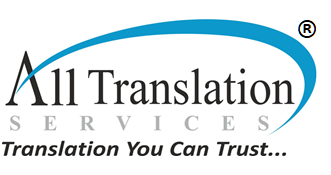Everything You Should Know About Certified Translation
Translation has existed for decades. It ensures that texts and materials are accessible to a majority of people. Further, it helps provide details in the dialect people are familiar with. In turn, this assures that people follow orders correctly. But, as the world is becoming more and more connected, the need for translation is only rising. With high demand, people who claim to be experts also increase. Thus, sometimes, finding quality translations can become tough.
What is a certified translation?
Certified Translation is one that is always along with a signed text or a statement that proves the precision of the work to the best of the expert’s ability and skill in the field. It makes sure that the work is up to the highest standard and is right. It is also known as the “Certificate of Accuracy”. The expert or the language solutions partner who converted that text usually makes it.
What Is Included In The Statement
Before you get it, you should know what it entails. The Certification Statement must include the following points at least :
– It should include a statement that declares and confirms the accuracy, validity, and clarity of the text.
– It should include source and translated document.
– It should also have the expert’s name, sign, and date of the Certification.
– At last, it should include the expert’s education. This helps in making sure if he or she is even qualified to certify the same.
All these details ensure that the certified text is valid. Thus, you should look for them once you receive the finished work.
When is Certified Translation required?
Certifying a work offers many benefits. Moreover, it is absolutely vital in some cases. Here are examples of such situations.
– Most of the legal documents would require a certified translation if the content is very technical in nature. There is the possibility of dire results if there are mistakes in the new text. Examples of this are oaths, legal binding bonds, trial papers, or anything that has to pass through a legal process.
– You need it in official texts such as birth or death certificates.
– Also if you are a foreign student, you need it in the admission process. You have to submit diplomas and mark sheets as certified translations.
– Adoption and divorce papers need Certified Translation
– Visa documents and driver’s license often needs such work
Thus, if it is an important document or you want to ensure the quality of the content, you should make use of certified translation.
Where Is It Not Required?
You do not need Certified Translations when it comes to unofficial documents. This is because they do not need to go through any kind of government or legal proceedings. That said, an expert should still translate content in the public eye to make sure it is culturally sensitive and accurate.
While certified translations are not always necessary, they can be vital to prevent any issues with translations. In the context of Business translation, the things people should keep in mind vary. Hence, it is always better to consult an expert if you are dealing with things that could have legal consequences.
